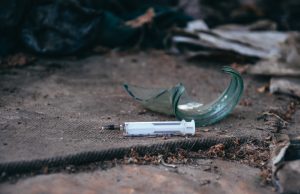Since the end of the war against the Liberation Tigers of Tamil Eelam in 2009, the proliferation of narcotics has become a serious problem in Sri Lanka.
Drug-related crimes have skyrocketed, and over 65 percent of prison inmates are there for drug-related offenses. Successive administrations under Presidents Mahinda Rajapaksa, Maithripala Sirisena, Gotabaya Rajapaksa, and Ranil Wickremesinghe carried out anti-drug campaigns, with little to show as results. Public cynicism grew, and many came to believe that politicians are involved in the drug trade.
During the campaign for the 2024 general elections, the National People’s Power (NPP) coalition had pledged to break the nexus between organized crime and politics and to eradicate drugs. After it came to power and following a change at the helm of the police, the NPP government rolled out a sweeping anti-drug and anti-crime drive. In the first nine months of 2025, police have stopped and searched close to a quarter of the population in a bid to detect illegal drugs and weapons.
Over the past nine months, Sri Lankan police have seized over three tons of heroin and crystal methamphetamine, in addition to 4,221 kilos of cannabis, 506 kilos of hashish, 29 kilos of cocaine, and over 3 million narcotic tablets.
This is a significant increase from 2024, when authorities seized just 832.3 kilos of heroin, 8,359 kilos of cannabis, 1,364 kilos of crystal methamphetamine, 23 kilos of cocaine and 291 kilos of hashish for the entire year.
Arrests have surged as well. In the first seven months of 2025, police arrested over 122,000 people for drug offenses. Police noted that the use of crystal methamphetamine in Sri Lanka was first reported in 2017, and that most users are between the ages of 19 and 26.
Despite the failure of previous wars on drugs, many Sri Lankans seem positive about the current anti-drug drive. What seems to be different about the current campaign is not only the breadth of operations but also the willingness to pursue cases that seem to be linked with political power.
In August 2025, five leaders of Sri Lankan-organized criminal gangs were arrested in Indonesia and brought back. Based on their information, police have made further arrests and found out for the first time that these gangs had started manufacturing methamphetamine in Sri Lanka with the help of foreign advisers. A politician of the opposition Sri Lanka Podujana Peramuna (SLPP) has been arrested for his involvement in methamphetamine manufacturing. The SLPP is the party of the Rajapaksas. The government has said that more politicians are involved in the drug trade and action will soon be taken against them.
These moves resonate with a public long angered by narco-politics. In previous years, some leaders of organized crime who had been arrested abroad and returned to the country suffered sudden and unexpected custodial deaths before they were able to reveal any information that could have led to breakthroughs. The public believes that they were silenced to protect powerful patrons. In contrast, the suspects returned this year remain alive and, according to investigators, have provided leads that produced tangible breakthroughs.
Supporters of the NPP program argue that the state is finally severing the crime-politics nexus. They point to interdictions at sea, inland raids, and the discovery of precursor chemicals as signs that enforcement is reaching deeper into the networks than in the past. Alongside raids and interdictions, the government has also pledged greater investment in treatment. The National Dangerous Drugs Control Board is to establish three new rehabilitation and treatment centers and a dedicated youth facility in Kandy. Most people who seek rehabilitation are aged 20 to 29. Whether these will operate on voluntary, health-led models or continue Sri Lanka’s long-criticized compulsory approach remains to be seen.
Human rights concerns, however, have not disappeared. Past anti-drug campaigns, especially the 2023 Yukthiya initiative, drew criticism for warrantless searches, mass round-ups, and degrading treatment. Rights advocates warn that heavy-handed tactics risk ensnaring users rather than dismantling trafficking networks, and further overcrowding prisons already dominated by drug offenders.
Balancing due process with visible enforcement remains a central challenge for any anti-drug policy that seeks lasting legitimacy. Transparency will shape public trust. Regular dashboards that pair seizure and arrest data with treatment admissions, court outcomes, and rights-compliance metrics would help convince a long-cynical public that this time is different, and that the campaign is not only tougher, but smarter.





























